Top 9 Best Books On Ethics
What would you do if you had to choose between letting five people die and killing one? What is the utilitarian justification for vegetarianism? Should our ... read more...kidneys be for sale? The philosopher offers some solutions and recommends the best books on 'ethical problems.' Take a look at the following list of the best books on ethics.
-
Peter Singer is currently the Ira W. DeCamp Professor of Bioethics at Princeton University's University Center for Human Values and a Laureate Professor at the University of Melbourne's Centre for Applied Philosophy and Public Ethics. He is the author or editor of over forty books, including Animal Liberation (1975), Rethinking Life and Death (1996), and The Life You Can Save (most recently) (2009). Time magazine named him one of the world's 100 most influential people in 2005.
Peter Singer's Practical Ethics has been the standard introduction to applied ethics for the past thirty years. For this third edition, the author has revised and updated all of the chapters, as well as added a new chapter addressing climate change, one of our generation's most pressing ethical challenges. Some of the issues raised in this book are relevant to our daily lives. Is it moral to purchase luxuries when others go hungry? Should we eat meat from animals raised intensively? Is there something I'm doing wrong if my carbon footprint exceeds the global average? Other issues confront us as concerned citizens: equality and discrimination based on race or gender; abortion, the use of embryos for research, and euthanasia; political violence and terrorism; and environmental preservation. This book's lucid style and provocative arguments make it an ideal text for university courses and anyone interested in considering how they should live. This classic textbook has been completely revised and updated for the third edition, which includes a new chapter on climate change.
Author: Peter Singer
Link to buy: https://www.amazon.com/gp/aw/d/0521881412/
Ratings: 4.5 out of 5 stars (from 169 reviews)
Best Sellers Rank: #3,248,333 in Books
#1,758 in Ethics
#12,030 in Philosophy of Ethics & Morality
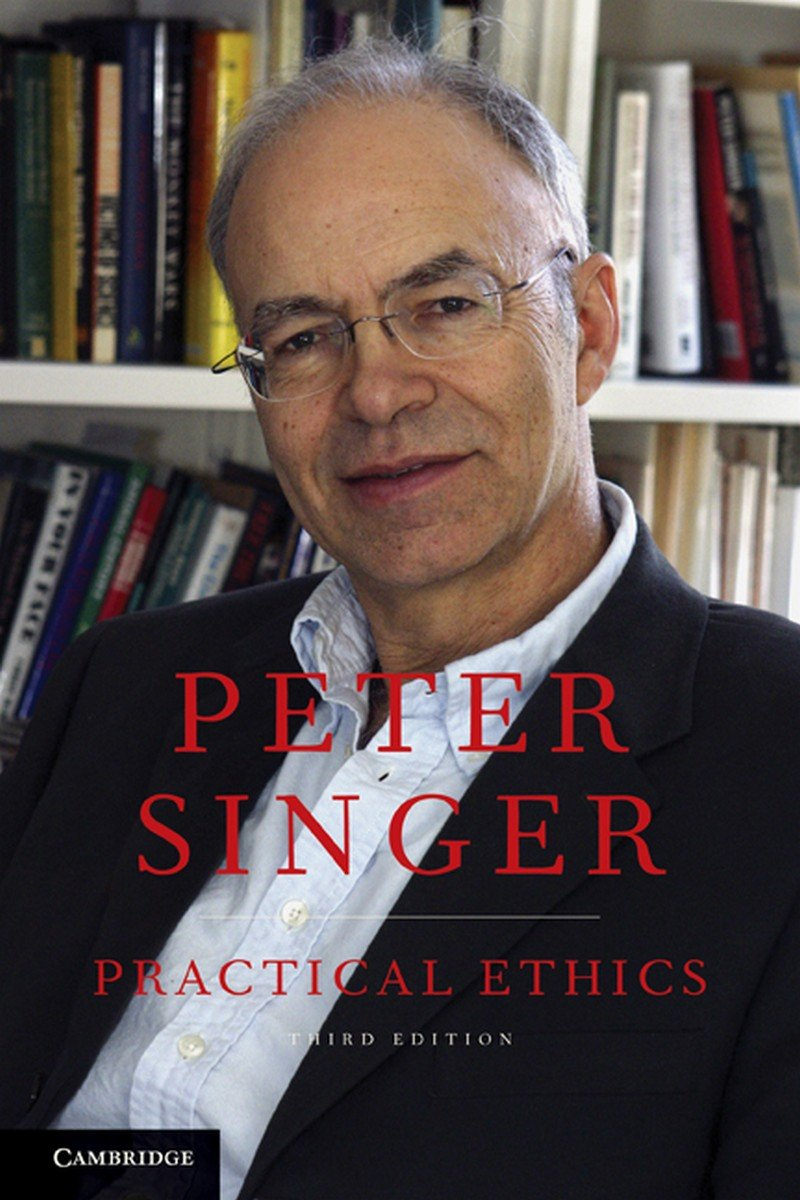
Amazon.in 
https://www.amazon.com/ -
Thomas Nagel (born July 4, 1937) is an American philosopher who is currently University Professor of Philosophy and Law Emeritus at New York University, where he has taught since 1980. His main philosophical interests are mind philosophy, political philosophy, and ethics.
Mortal Questions by Thomas Nagel delves into some fundamental questions about the meaning, nature, and value of human life. Death, sexual behavior, social inequality, war, and political power are shown to lead to more obvious philosophical problems about personal identity, consciousness, freedom, and value. In its lively engagement with what are literally issues of life and death, this original and illuminating book aims at a form of understanding that is both theoretical and personal.
Thomas Nagel writes with the clarity and simplicity that analytical philosophers have always admired. If anyone can capture and hold the general reader's attention with this book, it has to be Thomas Nagel. Mortal Questions by Thomas Nagel is regarded as one of the best books on ethics.
Author: Thomas Nagel
Link to buy: https://www.amazon.com/gp/aw/d/1107604710/
Ratings: 4.6 out of 5 stars (from 105 reviews)
Best Sellers Rank: #108,982 in Books
#2 in Metaphysics (Books)
#89 in Philosophy Metaphysics
#258 in Philosophy of Ethics & Morality

https://www.amazon.com/ 
https://www.amazon.com/ -
Professor J. J. C. Smart is Emeritus at the Australian National University. He is the author of numerous books, including "Philosophy and Scientific Realism," "Ethics, Persuasion, and Truth," and "Utilitarianism: For and Against" (with Bernard Williams). J. J. Haldane is a philosopher and the director of the Centre for Ethics, Philosophy, and Public Affairs at the University of St Andrews.
Bernard Williams is a Deutsch Professor of Philosophy at the University of California, Berkeley, and an All Souls College Fellow at Oxford. Problems of the Self (Cambridge University Press, 1973), Moral Luck (Cambridge University Press, 1981), Ethics and the Limits of Philosophy (Harvard University Press, 1986), Shame and Necessity (University of California Press, 1993), and Making Sense of Humanity (University of California Press, 1993) are among his many publications (Cambridge University Press, 1995).
J. J. C. Smart and Bernard Williams wrote two essays on utilitarianism from opposing perspectives. Professor Smart advocates a modern and sophisticated version of classical utilitarianism in the first part of the book; he attempts to formulate a consistent and persuasive elaboration of the doctrine that the rightness and wrongness of actions is determined solely by their consequences, particularly their consequences for the sum total of human happiness. Bernard Williams provides a sustained and vigorous critique of utilitarian assumptions, arguments, and ideals in Part II. He considers utilitarianism's implied theory of action insufficient, arguing that it fails to engage seriously with the real problems of moral and political philosophy, and fails to make sense of concepts such as integrity, or even human happiness itself. Welfare economists, political scientists, and decision-theorists should all find this book interesting. Utilitarianism is among the best books on ethics.
Author: Bernard Williams and J. J. C. Smart
Link to buy: https://www.amazon.com/gp/aw/d/B00D2WPZUI/
Ratings: 4.3 out of 5 stars (from 45 reviews)
Best Sellers Rank: #897,550 in Kindle Store
#157 in Humanism Philosophy
#731 in Humanist Philosophy
#776 in Consciousness & Thought (Kindle Store)

https://www.scribd.com/ 
https://www.amazon.com/ -
Julia Driver is a philosophy professor at Dartmouth College. Uneasy Virtue (2001) is her first book, and she has published numerous articles in journals such as The Journal of Philosophy, The Philosophical Quarterly, and Noûs.
Ethics: The Fundamentals introduces students to various philosophical approaches to ethics, such as virtue ethics, Kantian ethics, divine command theory, and feminist ethics, in order to explore core ideas and arguments in moral theory.
- The first book in a new series called Fundamentals of Philosophy.
- Presents lively, real-world examples of key moral philosophers and their ideas, as well as thoughtful discussion.
- This is an excellent resource for readers who are learning about ethics for the first time.
Julia Driver's admirably clear and concise account of the fundamentals of ethics will serve as an excellent text for introductory courses and beyond, as well as a good place to start for the curious layperson. She delves deeply and insightfully into the major issues, citing historical and contemporary works and employing vivid and entertaining examples. Driver's introductory textbook discusses the theories that should be discussed in an engaging and objective manner. The book is not only simple enough for students who are encountering moral philosophy for the first time, but it is also in-depth enough for more advanced students.
Author: Julia Driver
Link to buy: https://www.amazon.com/gp/product/1405111542/
Ratings: 4.3 out of 5 stars (from 90 reviews)
Best Sellers Rank: #765,340 in Books
#206 in Ethics
#2,485 in Philosophy of Ethics & Morality
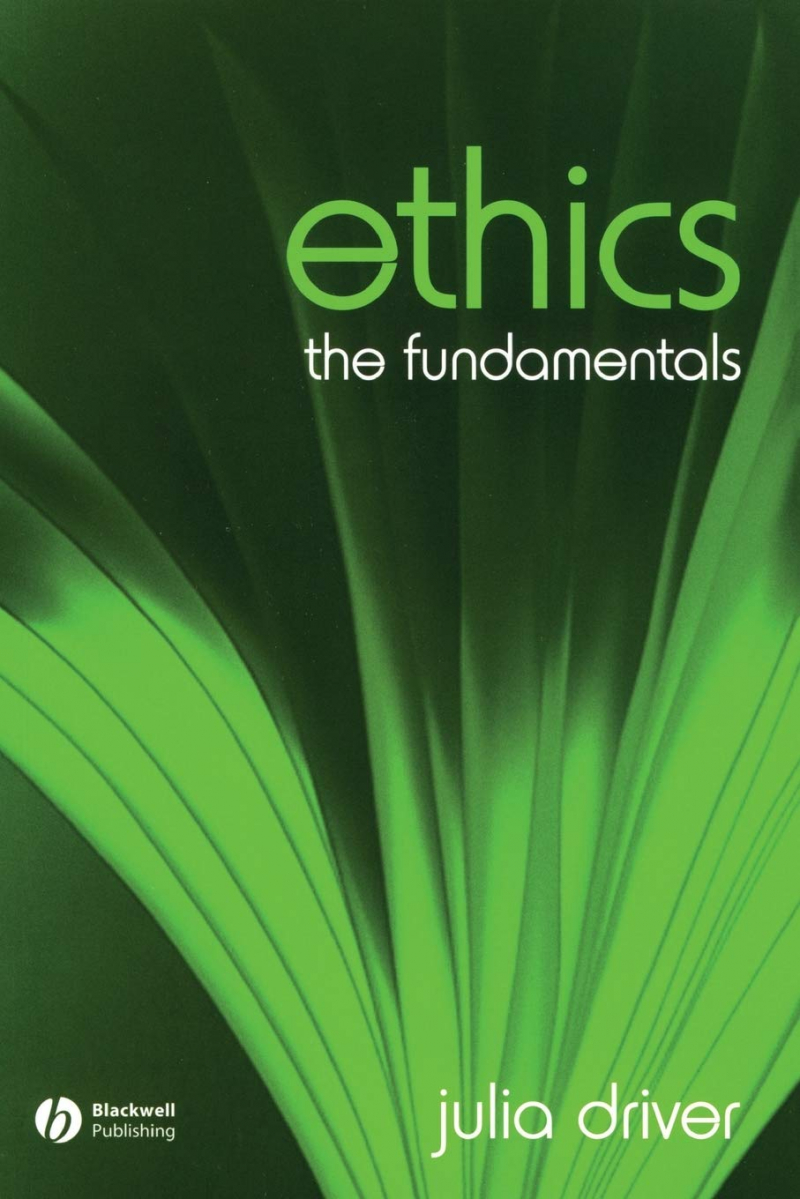
https://www.amazon.com/ 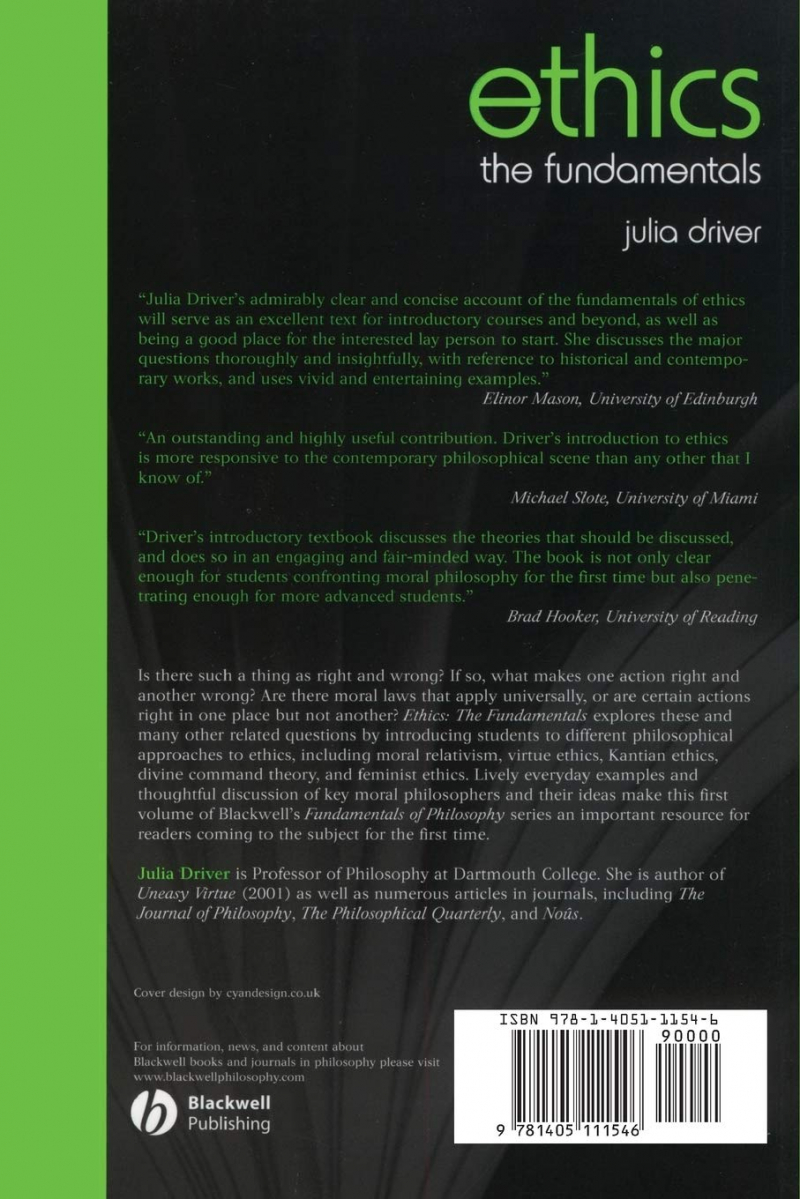
https://www.amazon.com/ -
Simon Blackburn is a Philosophy Professor at the University of Cambridge. He was the Edna J. Doury Distinguished Professor of Philosophy at the University of North Carolina until recently, and he was a Fellow and Tutor at Pembroke College, Oxford, from 1969 to 1999. Among his many books are The Oxford Dictionary of Philosophy (1994) and the best-selling Think (OUP, 1999).
In this lively book, Simon Blackburn tackles the fundamental questions of ethics with wit and elegance, highlighting the complications and troubling issues that arise from the very simple question of how we ought to live. Blackburn examines the various reasons why we are skeptical of ethics. Using examples from history, politics, religion, and everyday personal experience, he demonstrates how cynicism and self-consciousness can paralyze us into believing that ethics is a hopeless pursuit. He assures us that ethics is not a frivolous or irrelevant pursuit, but rather an integral part of the most important issues of life—birth, death, happiness, desire, freedom, pleasure, and justice. Indeed, our everyday struggles are rife with ethical issues, from moral quandaries about abortion and euthanasia to our obsession with personal rights to our longing for a sense of meaning in life. Blackburn boils down Hume, Kant, and Aristotle's arguments to highlight the timeless relevance of our conscience, the dangers of complacency, and our concerns about truth, knowledge, and human progress.
Being Good is an important statement on our current disenchantment with ethics, thanks to Blackburn's rare combination of depth, rigor, and sparkling prose, as well as his distinguished ranking among contemporary philosophers. It encourages us to consider our ethical climate more carefully and to reconsider our own standards of behavior.
Author: Simon Blackburn
Link to buy: https://www.amazon.com/gp/product/0192853775/
Ratings: 4.3 out of 5 stars (from 186 reviews)
Best Sellers Rank: #361,986 in Books
#58 in Ethics
#1,112 in Philosophy of Ethics & Morality
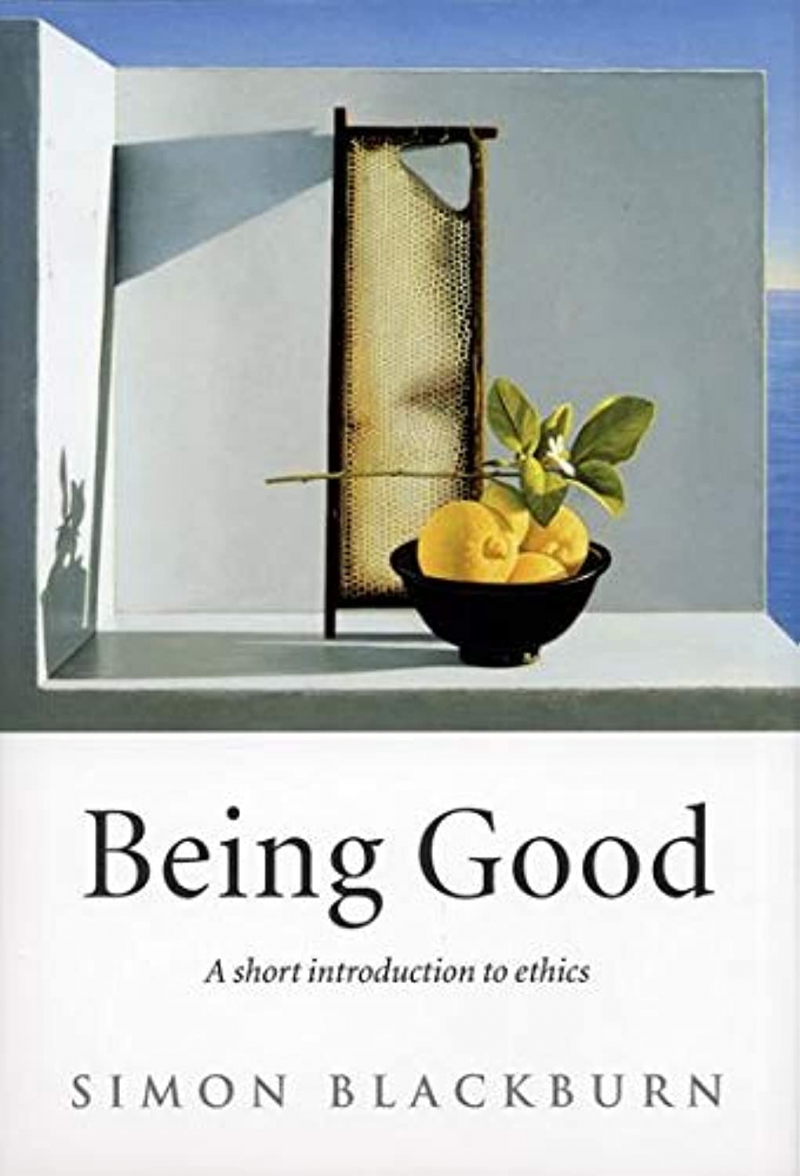
https://www.amazon.com/ 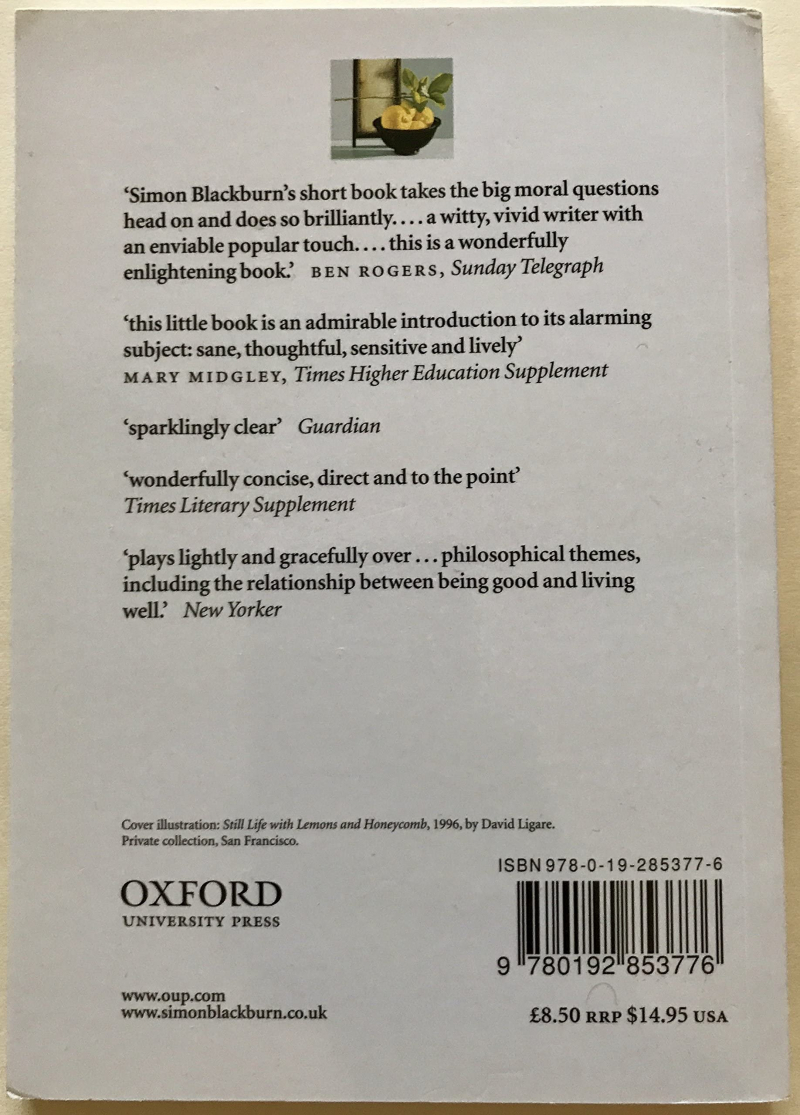
https://www.amazon.com/ -
Sir David Ross (1877-1971) was Oxford's Provost and Deputy Professor of Moral Philosophy. He was the General Editor of the entire Aristotle Oxford Translation. Lesley Brown is Somerville College Oxford Fellow and Tutor in Philosophy.
Aristotle is a towering figure in Western thought, having studied with Plato and taught Alexander the Great. He was a brilliant thinker with diverse interests who wrote significant works in physics, biology, poetry, politics, morality, metaphysics, and ethics.
Aristotle's guiding question in the Nicomachean Ethics, which he is said to have dedicated to his son Nicomachus, is what is the best thing for a human being. His response is happiness. "Happiness is the best, noblest, and most pleasant thing in the world," he wrote. But he doesn't mean something we feel, an emotion, but rather a particularly good kind of life. Happiness is composed of activities that allow us to use our best human capacities, both those that contribute to our flourishing as members of a community and those that allow us to engage in god-like contemplation. This work has inspired contemporary ethical writings on the role and importance of moral virtues such as courage and justice, as well as important discussions on responsibility, practical reasoning, and the role of friendship in creating the best life.
This new edition combines Lesley Brown's light revision of David Ross's classic translation with a new and invaluable introduction and explanatory notes. This exceptional new edition is enhanced by a glossary of key terms, a comprehensive index, and a fully updated bibliography.
Author: Aristotle, Sir David Ross and Lesley Brown
Link to buy: https://www.amazon.com/gp/product/0199213615/
Ratings: 4.6 out of 5 stars (from 731 reviews)
Best Sellers Rank: #89,405 in Books
#125 in Greek & Roman Philosophy (Books)
#202 in Philosophy of Ethics & Morality
#2,401 in Classic Literature & Fiction
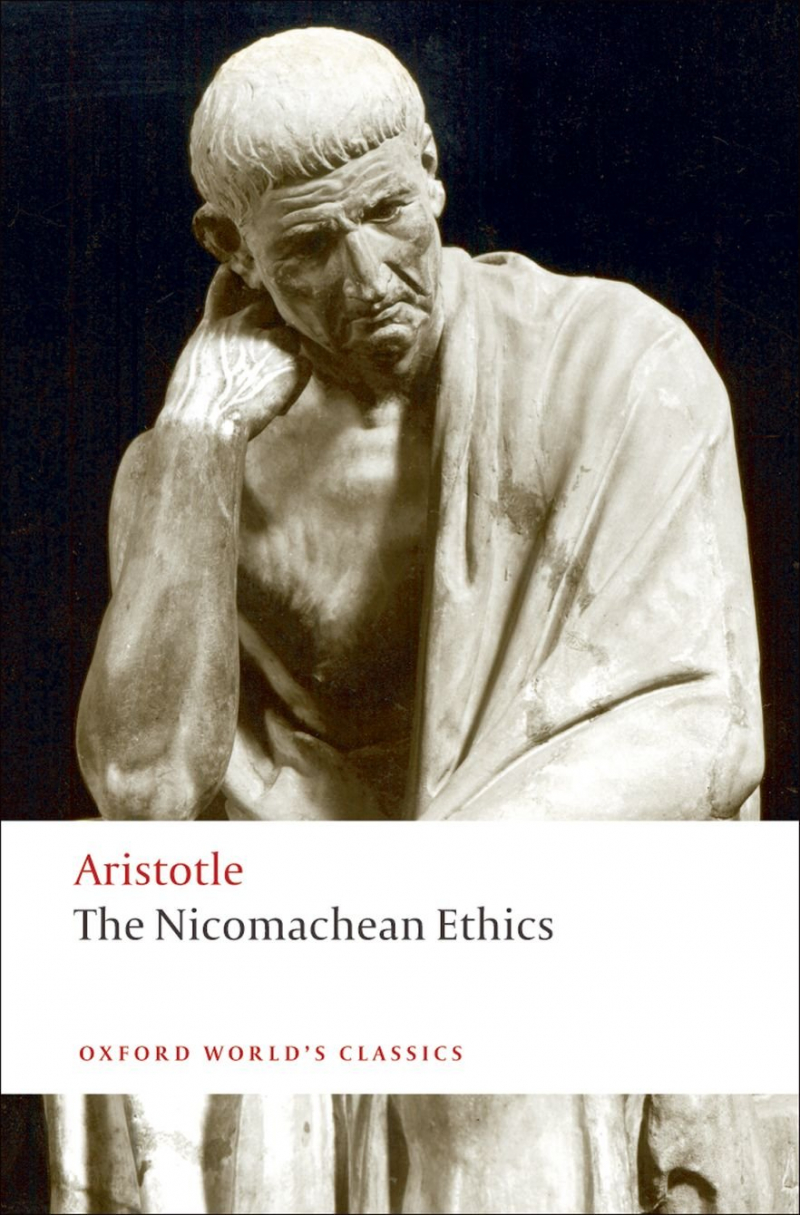
https://www.amazon.com/ 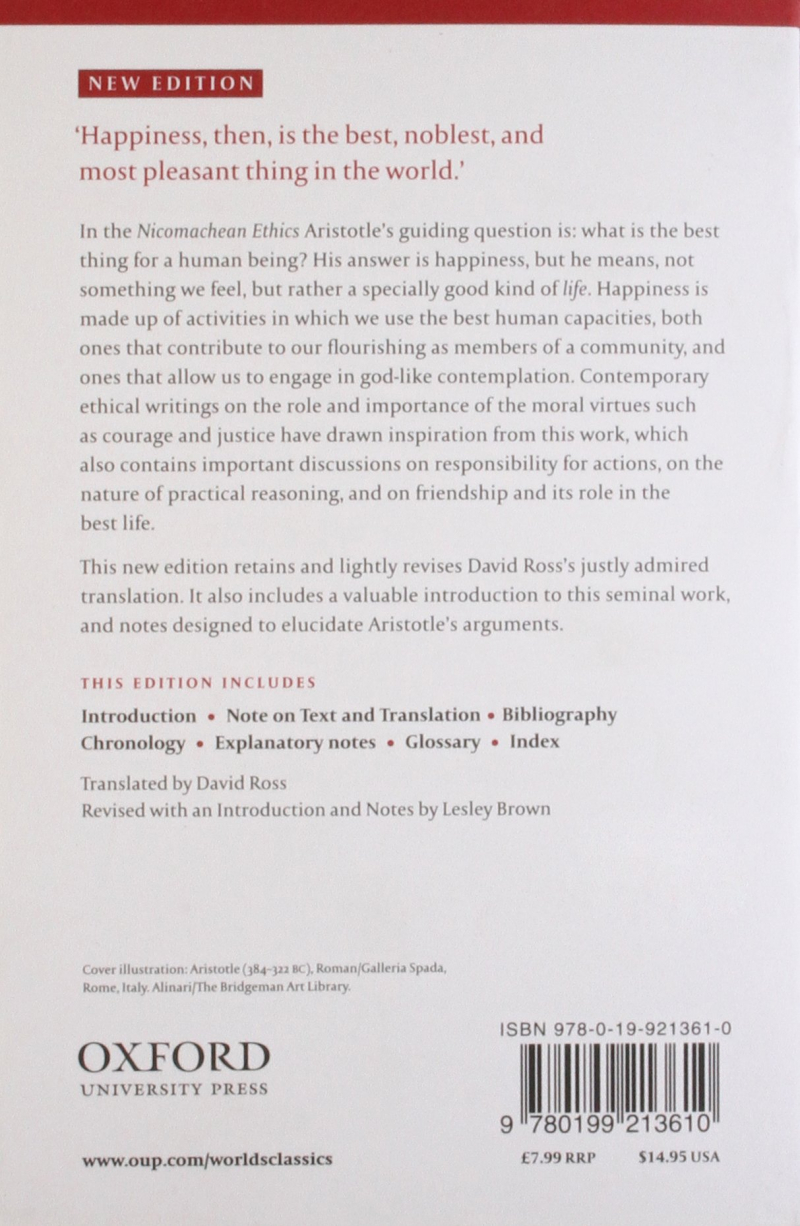
https://www.amazon.com/ -
Harvard University's Arthur Kingsley Porter Professor of Philosophy is Christine M. Korsgaard. She is the author of Self-Constitution: Agency, Identity, and Integrity (2010), The Constitution of Agency (2009), The Sources of Normativity (Cambridge, 1996), and Creating the Kingdom of Ends (Cambridge, 1996). (Cambridge, 1996).
Jens Timmermann is a Reader in Moral Philosophy at St Andrews University. He is the author of Kant's Metaphysical Groundwork: A Commentary (Cambridge, 2007) and Sittengesetz und Freiheit (2003). He co-edited Kant's Critique of Practical Reason: A Critical Guide (Cambridge, 2010) and Kant's Groundwork of Metaphysics of Morals: A Critical Guide (Cambridge, 2009).
Kant: Groundwork of the Metaphysics of Morals, published in 1785, is regarded as one of the most profound and influential works in moral philosophy, alongside Plato's Republic and Aristotle's Nicomachean Ethics. It is also among the best books on ethics. Its goal, in Kant's words, is to identify and validate the supreme moral principle, the categorical imperative. He contends that humans are ends in themselves, never to be used as a means by anyone, and that universal and unconditional obligations must be interpreted as an expression of the human capacity for autonomy and self-governance. As such, they are freedom laws. This edition includes Mary Gregor's acclaimed translation, sympathetically revised by Jens Timmermann, and Christine Korsgaard's accessible, updated introduction.
The Cambridge translation of Immanuel Kant's Groundwork, one of the most powerful texts in the history of ethical thought, has been revised. It contains a revised text as well as updated introductory material. Undergraduate and graduate students of philosophy history, ethics, and Kant studies.
Author: Christine M. Korsgaard and Jens Timmermann
Link to buy: https://www.amazon.com/gp/product/1107401062/
Ratings: 4.7 out of 5 stars (from 295 reviews)
Best Sellers Rank: #94,780 in Books
#52 in Philosophy History & Survey
#70 in Philosophy Metaphysics
#216 in Philosophy of Ethics & Morality
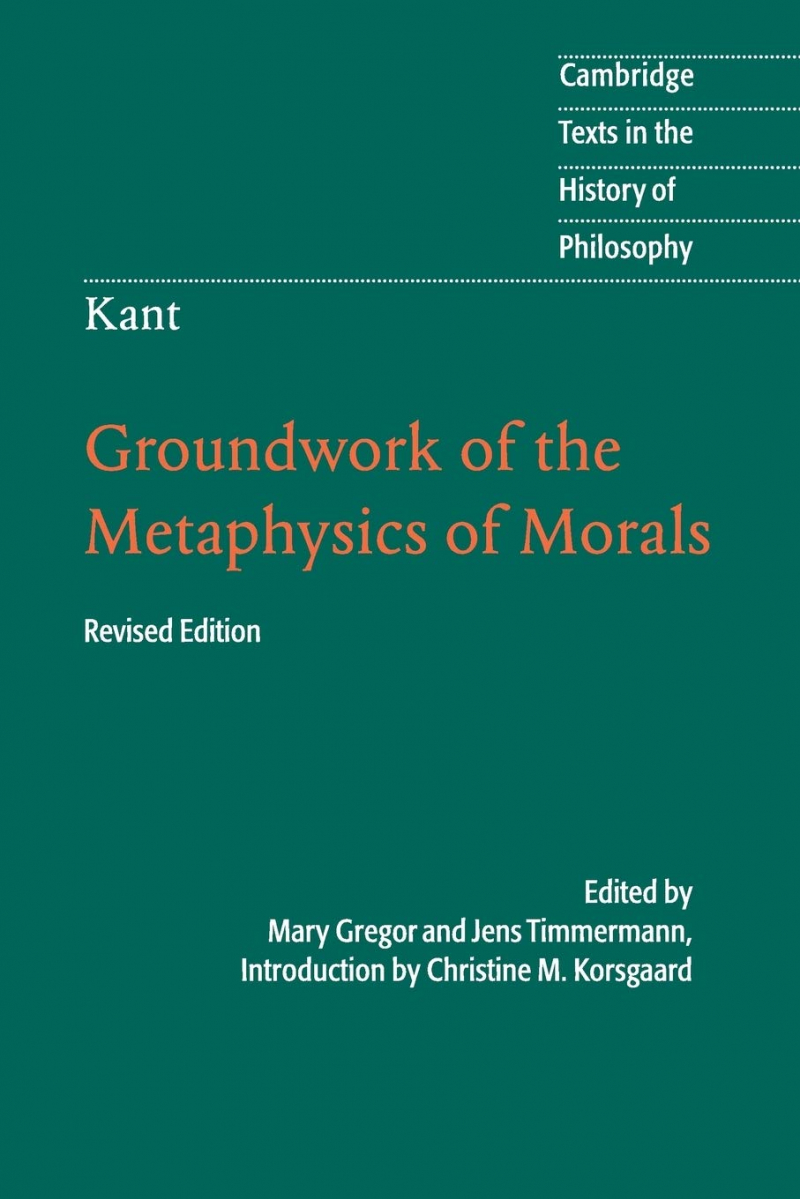
https://www.amazon.de/ 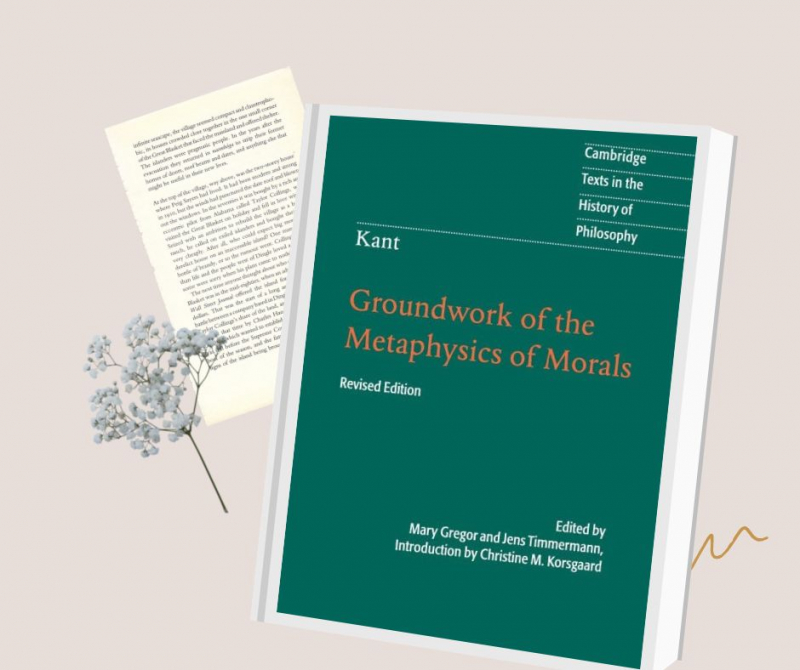
https://www.amazon.com/ -
Friedrich Nietzsche (1844-1900) was a philosopher, critic, composer, and poet best known for his works Thus Spoke Zarathustra, Beyond Good and Evil, Twilight of the Idols, The Antichrist, and Ecce Homo. Michael A. Scarpitti is an independent philosopher. Robert C. Holub is a German professor at Ohio State University.
On the Genealogy of Morals, according to Friedrich Nietzsche, was written to draw attention to his previous works. However, the book does much more than that, elucidating and expanding on the cryptic aphorisms of Beyond Good and Evil, as well as presenting a coherent discussion of morality in a work that is more accessible than much of his previous work.
Penguin has been the leading publisher of classic literature in the English-speaking world for over 65 years. Penguin Classics, with over 1,500 titles, represents a global bookshelf of the best works throughout history, across genres, and disciplines. Readers rely on the series to provide authoritative texts that are supplemented with introductions and notes by eminent scholars and contemporary authors, as well as up-to-date translations by award-winning translators.
Author: Friedrich Nietzsche, Michael A. Scarpitti and Robert C. Holub
Link to buy: https://www.amazon.com/gp/product/0141195371/
Ratings: 4.7 out of 5 stars (from 274 reviews)
Best Sellers Rank: #64,371 in Books
#14 in Philosophy of Good & Evil
#137 in Philosophy of Ethics & Morality
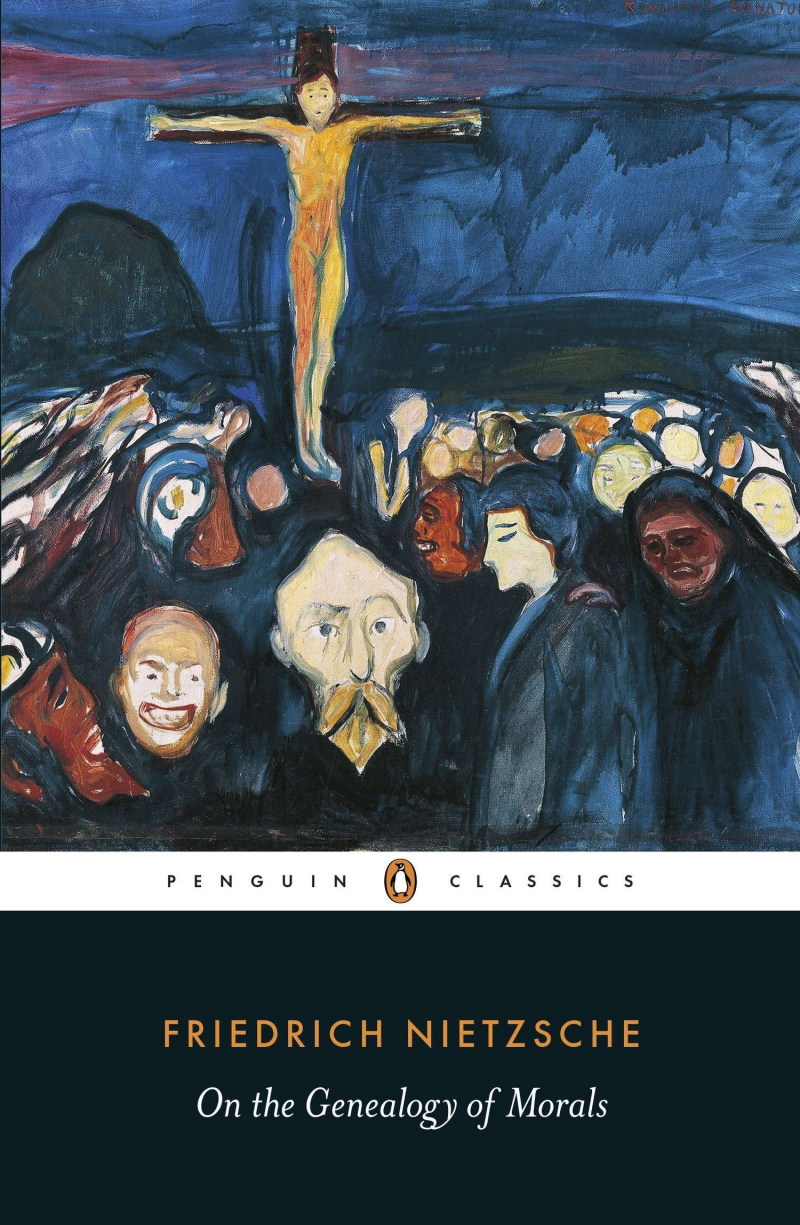
https://www.amazon.com/ 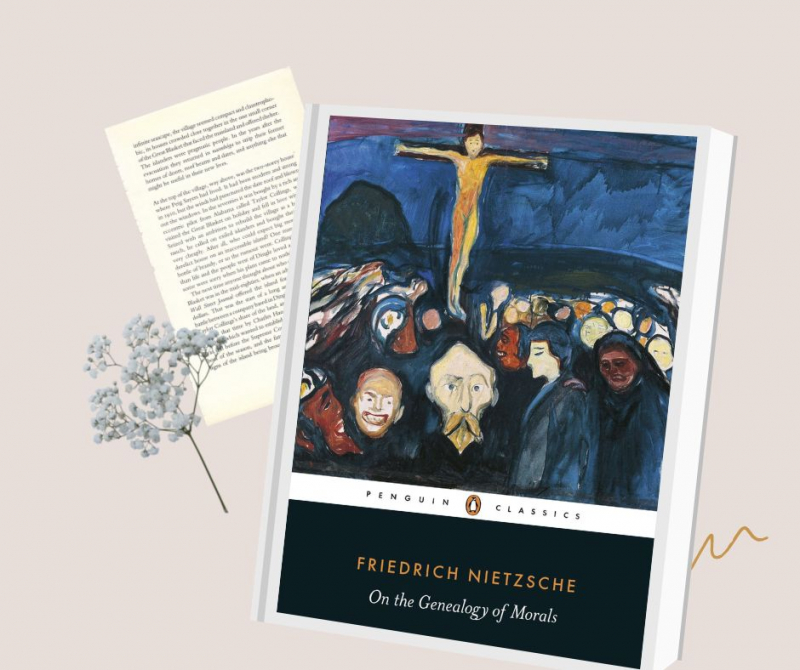
https://www.amazon.com/ -
T. M. Scanlon is the Emeritus Alford Professor of Natural Religion, Moral Philosophy, and Civil Politics at Harvard. He is the author of What We Owe to Each Other, one of the best books on ethics.
How do we determine whether an action is morally correct or not? What reason does it give us not to do something if it is wrong? Why should we prioritize such reasons over our other concerns and values? T. M. Scanlon offers new answers to these questions in this book, as they apply to the central part of morality that concerns what we owe to one another. Thinking about right and wrong, in his contractualist view, is thinking about what we do in terms that others can justify but cannot reasonably reject. He demonstrates how the value of being related to others in this way gives rise to the special authority of conclusions about right and wrong, and he demonstrates how familiar moral ideas like fairness and responsibility can be understood through their role in this process of mutual justification and criticism.
Scanlon's contractualism is based on a broader account of reasons, value, and individual well-being that challenges conventional wisdom about these critical concepts. He contends that desires do not provide us with reasons, that states of affairs do not bear primary value, and that well-being is not as important for rational decision-making as is commonly assumed. Scanlon believes in both moral and non-moral values. Taking this plurality of values into account, he claims that contractualism allows for most of the variability in moral requirements claimed by relativists while still accounting for the full force of our judgments of right and wrong.
Author: T. M. Scanlon
Link to buy: https://www.amazon.com/gp/product/067400423X/
Ratings: 4.7 out of 5 stars (from 526 reviews)
Best Sellers Rank: #35,895 in Books
#7 in Social Philosophy
#34 in Political Philosophy (Books)
#80 in Philosophy of Ethics & Morality
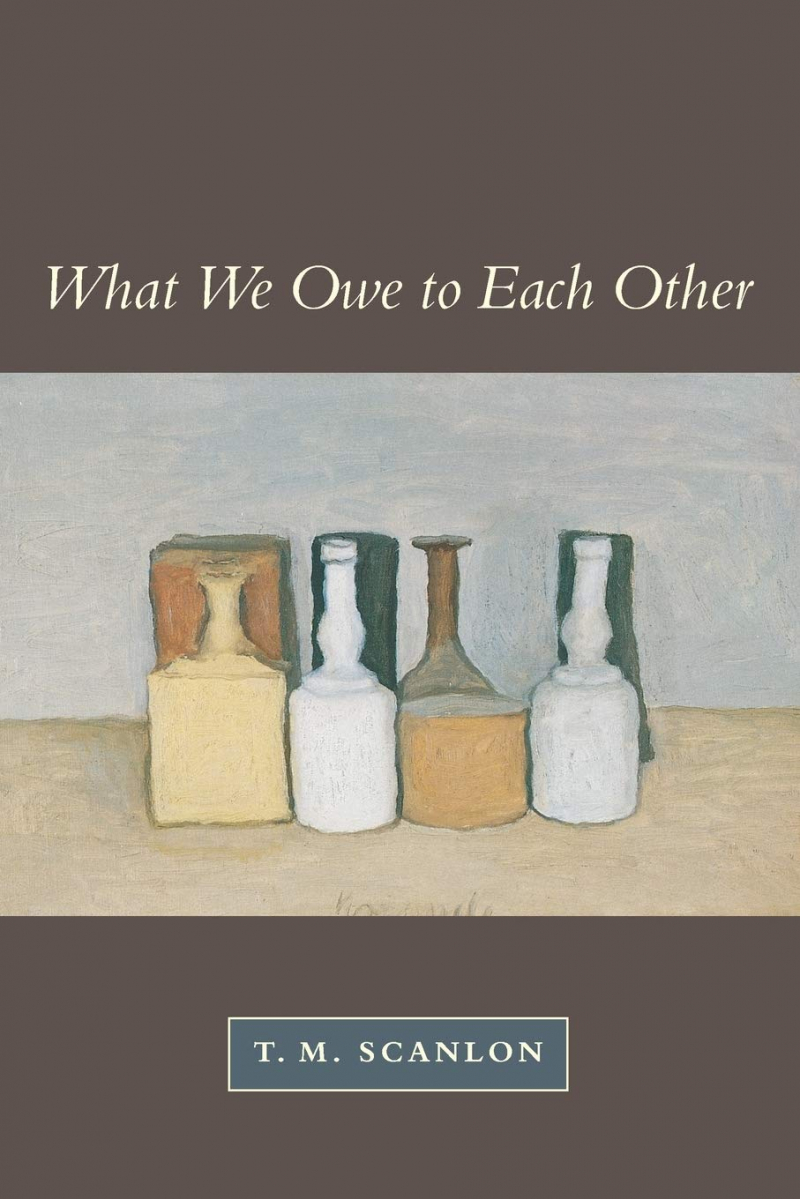
https://www.amazon.com/ 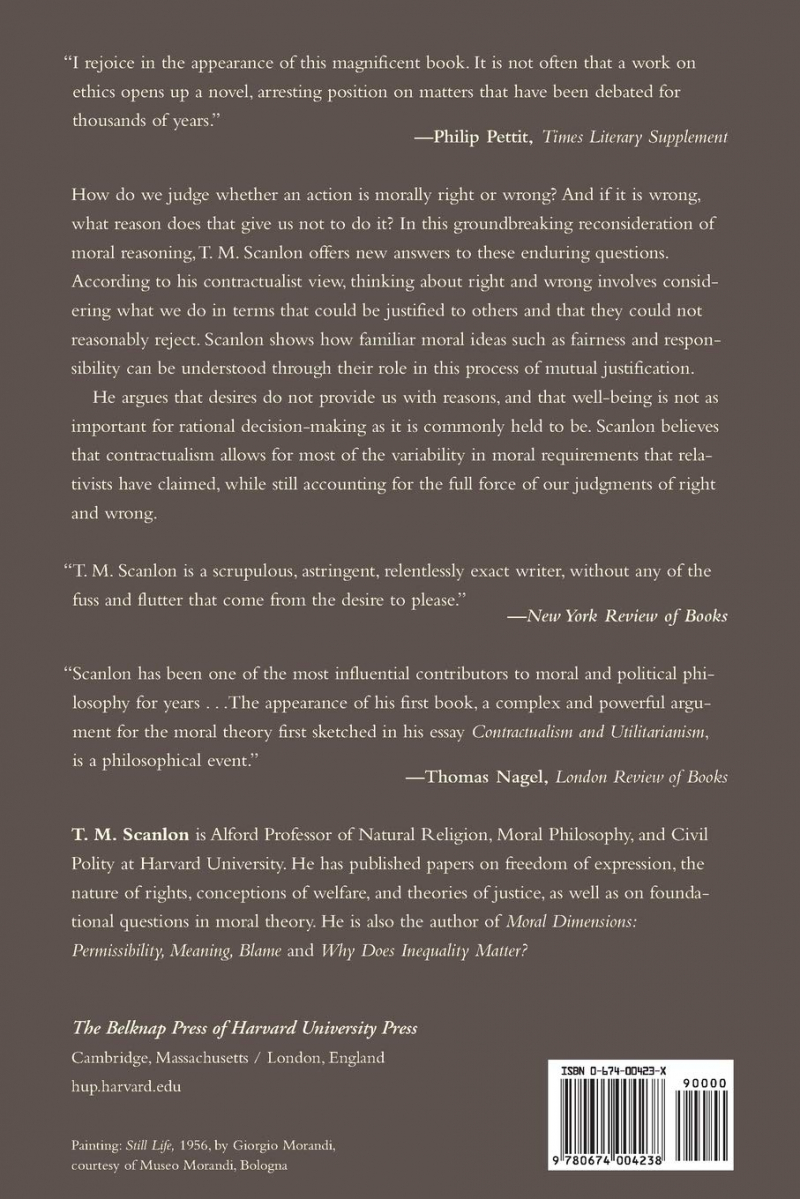
https://www.amazon.com/






























